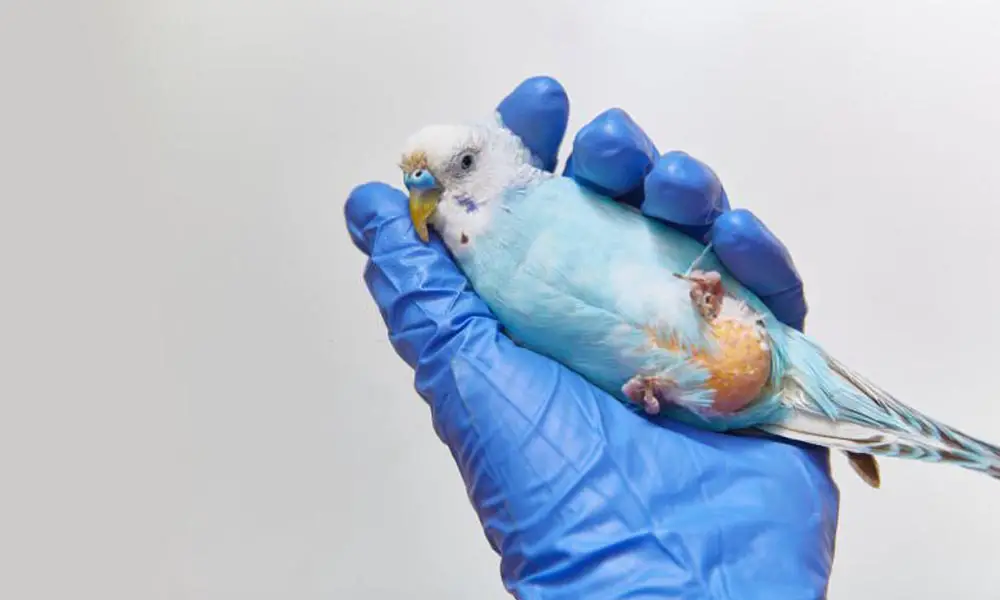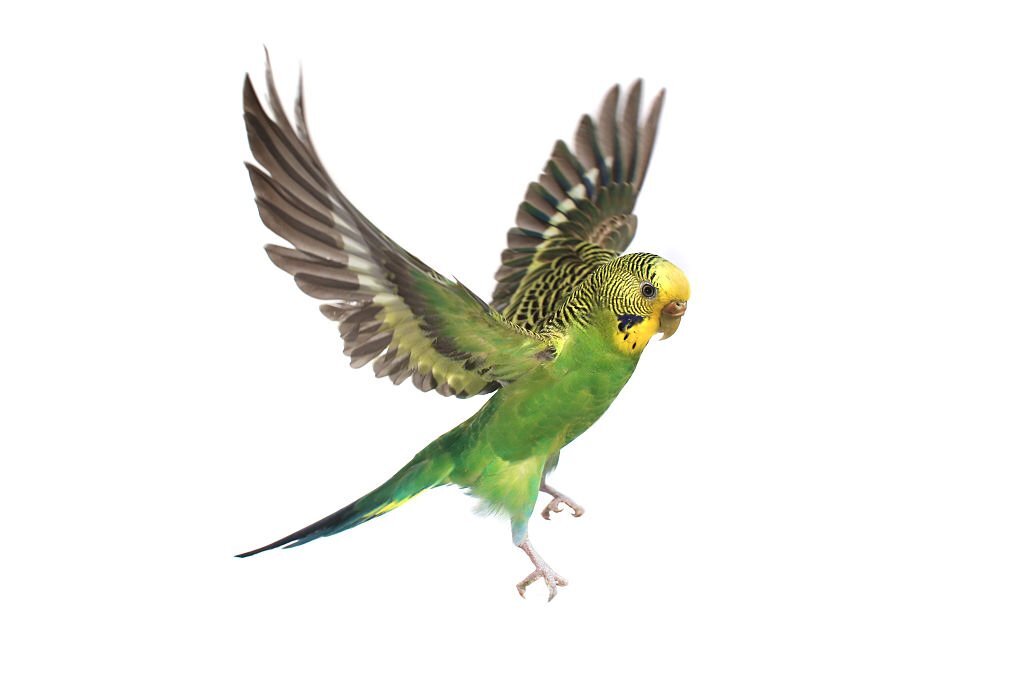Budgies, native to Australia, are highly social birds that thrive in the company of their own kind. However, budgie owners often become concerned when they notice their pet budgies displaying aggressive behaviors like chasing, biting, or attacking each other. There are 5 common reasons “Why Are Your Budgies Fighting?”.
- Territory and Nest Disputes
- Competition for Food and Resources
- Attempts at Mating
- New Bird Introduction
- Hormonal Changes
Figuring out why budgies may engage in hostile interactions is the first step to reducing budgie’s aggression in the flock, maintaining well-being, and fostering a harmonious environment.

Contents
Territory and Nest Disputes
One of the primary causes of budgie fighting is territorial disputes, especially related to nesting spots. As prey animals in the wild, budgies have a strong instinct to protect the areas they consider their own territory. This territorial behavior naturally increases during the breeding season when males will competitively fight over potential mates and nesting sites.
Having only one nesting box or platform in the cage often leads to conflicts as budgies will aggressively defend this solitary nesting area. Budgie owners should provide multiple natural nesting spots, such as plant pots, hides, or suspended nesting boxes, give birds much-needed personal space and help decrease disputes. Owners of only one or two budgies should also be aware that the close quarters and lack of other flock members can intensify territorial tendencies which may spark aggressive incidents.
Competition for Food and Resources
Stress from competition over limited resources also plays a role in budgie squabbles. When food, water, perches, toys, or other necessities become scarce due to a shortage, budgies experience heightened stress that sometimes emerges as aggression towards their cagemates. As a result, make sure to always provide enough staple foods, foraging opportunities, multiple perches and toys to satisfy all birds in the flock.
Feeding budgies in separate areas of the cage rather than gathering in one spot also helps curb fighting associated with mealtimes, as well. Rotating available toys and changing up perch positions every few days keeps things novel and interesting, reducing squabbles over ownership of environmental items.
Attempts at Mating
Unbred male budgies, especially juveniles still maturing, may demonstrate heightened mating behaviors that trigger aggression in other males. Males attempting courtship displays or mating behaviors towards both males and females can spark territorial defense from rivals. Separating any males acting excessively hormonal or disruptive may be necessary to maintain harmony.
New Bird Introduction
The stress of introducing a new bird to an existing flock poses one of the greatest risks for increased fighting. Budgies view any unfamiliar bird as a potential threat to their territory, mate, and social hierarchy. A fast introduction nearly always leads to excessive squawking, chasing and conflict.
To help budgies accept new members, keep them separated initially by housing the newcomer in a cage next to the main flock for a few weeks. This allows birds to become slowly accustomed to each other’s presence and scent without actual contact or interaction. Supervised flight time together while monitoring for fighting is the next step before full integration. With patience and diligence over several weeks, most budgies can be successfully bonded this way.
Hormonal Changes
Naturally fluctuating hormone levels also influence budgie temperament at times. Periods of hormonal change, such as the start of the molting season, may make individual budgies more prone to displaying aggressive posturing or chasing. Providing a consistent diet, ample sleep, low stress environment, and positive human interaction helps keep hormonal budgies relaxed and content.

Ways to Reduce Aggression
Making simple habitat adjustments provides opportunities to diffuse territorial triggers and reduce competition stressors that cause disputes. Budgies should always have at least three food and water bowls, plenty of perches at varying heights and diameters, plus a variety of safe toys rotated regularly. Hides like tubed perches, hanging pots, or suspended huts give timid birds a quiet retreat from assertive flockmates.
For pairs or small group cages, the addition of another buddy bird spreads out flock dynamics and dilutes individual territorial urges. When properly introduced, more birds encourage less dominant and antagonistic behaviors between individuals.
Stress is a primary trigger of hormonal spikes and bad moods – using calming techniques fosters gentler flock interactions. Occasionally covering the cage for 30 minutes or rotating new chewable toys throughout the day gives fidgety budgies stimulation and prevents fixation on cagemates. Permanently separating any birds excessively antagonistic towards each other also improves overall cage harmony.
Frequently Asked Questions
Here are 3 questions for “Why are my parakeets so loud in the morning?” that pet lovers often wonder:
1. Why are my budgies fighting so much?
There are 5 main reasons why your budgies may be fighting more frequently.
- Territory and Nest Disputes
- Competition for Food and Resources
- Attempts at Mating
- New Bird Introduction
- Hormonal Changes
Budgies are very territorial, especially during breeding season, so increased fighting could be due to disputes over nesting areas or food and perch resources if there is not enough space in the cage. Introducing a new budgie recently could also be cause for stress and fights as the flock dynamics adjust. Making sure each budgie has its own food bowls, perches, and toys to discourage competition over limited items may help reduce tensions. You could also try rotating toys to reduce boredom, which can lead to undesirable behaviors. Adding more hiding spots or toys may help diffuse conflicts by providing enough stimulation and space to get away from more assertive cagemates.
2. How do I stop my budgies from fighting?
There are also 5 things you can try to stop your budgies from fighting. First, make sure each budgie has its own food and water dishes, as well as several perches and toys, to avoid competition over limited resources. Then, you should also provide multiple resting spots like hides or hanging pods to discourage territorial disputes. Next, try rearranging toys and perches weekly to stimulate natural foraging behaviors. Moreover, monitor flock interactions and separate any birds that are especially aggressive towards each other. Last but not least, maintaining a consistent routine, rotating new chew toys daily, and covering the cage temporarily for calm-down periods can help reduce stress. With some modifications and patience, you can take steps to establish a more peaceful environment.
3. Should you separate budgies if they fight?
It can be a good idea to separate budgies if they are fighting excessively. Not all fighting is cause for concern, as some squabbles are just part of normal flock behavior. However, if certain budgies are consistently aggressive and targeting others, it’s better to house them individually for their safety and welfare. Separating combatant budgies immediately after a fight allows them to calm down without continuing the conflict. Over time, their bond may improve if reintroduced gradually with supervision. If separating stops the aggression, it suggests an incompatibility that’s best resolved by keeping them apart. Some fights can escalate to injuries, so separating combative pairs prevents harm. With other fixes also tried, a temporary or permanent split may be best for reducing distressing budgie battles.
Conclusion
With diligent management of potential causes, most budgie clashes can be avoided or reduced to minor squabbles. By providing sufficient space, resources, enrichment and social bonds, owners relieve occupancy pressures steering budgies towards fighting. Understanding normal flock behaviors and knowing when to implement change results in happy, stress-free bird companionship. Any owners still worried over consistent or severe aggression should seek guidance from an avian veterinarian for further interventions or behavioral counseling. With commitment to their wellbeing, budgies can live together peacefully for many years.







